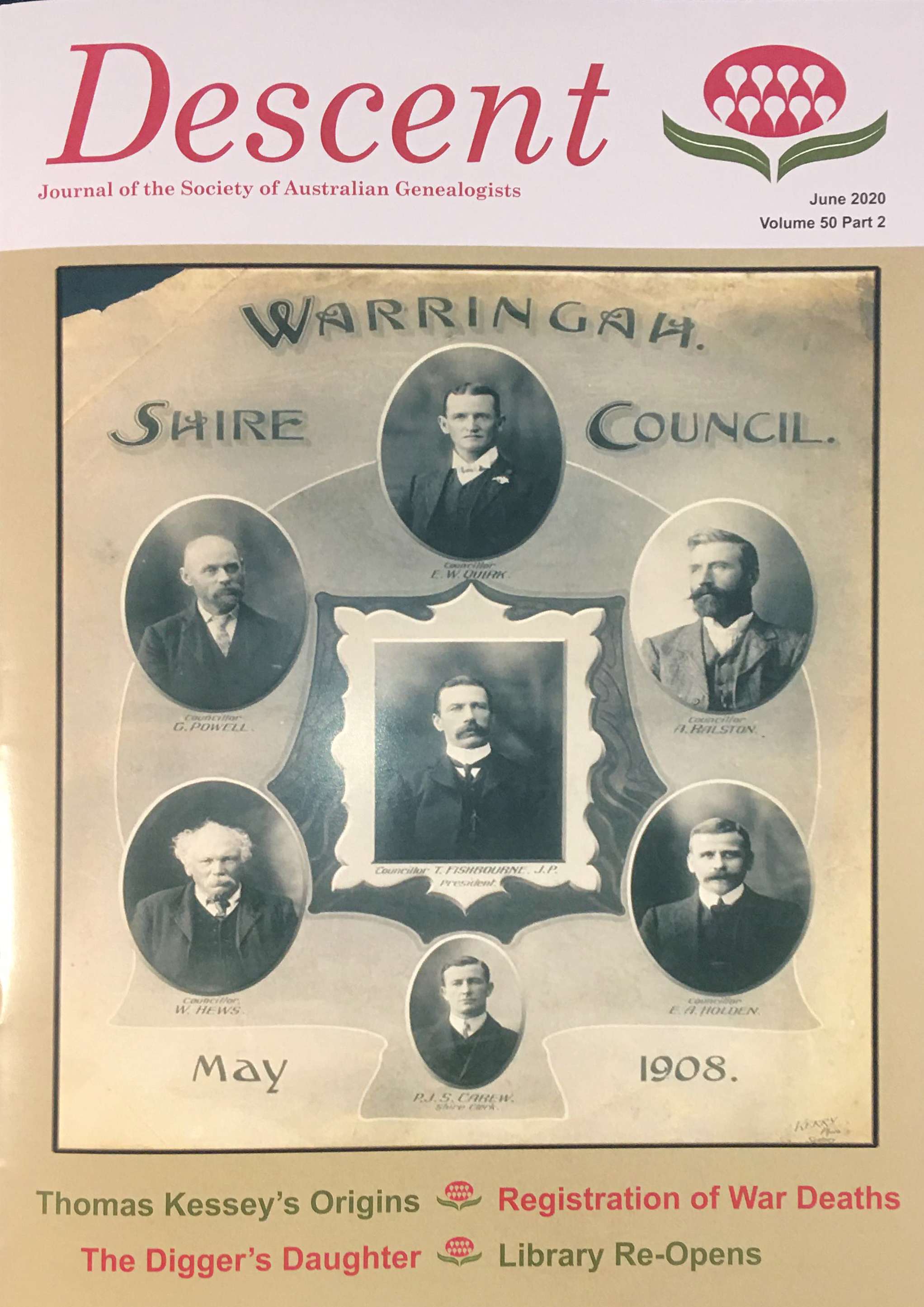 Logo for Thomas Cassey
Logo for Thomas Cassey
Thomas Cassey survived a death sentence in England to become a cartage contractor in the central west of New South Wales for about 50 years between the 1820s and the 1870s. Along with his wife Judith Grady he raised a large family that has since produced thousands of descendants.
In early January 1818, 24-year-old Thomas was arrested at Edmonton (Middlesex) and charged with stealing some cart harness from John Whitbread and two sheep from William White. He was tried at the Old Bailey court in London on 14 January, found guilty and sentenced to death by Mr Justice Park. A month later he was granted respite from the death sentence by the Prince Regent; instead he was to be transported for life.
On his arrival in Sydney he was immediately given a job in the Commissariat Department that coordinated the collection and distribution of much of the food produced in NSW. Thanks to his experience carting rural produce in Edmonton, Thomas was well-suited to this position and was soon promoted to overseer. His performance and behaviour must have continued to be very good because he was granted a Conditional Pardon within just three years of his arrival in Sydney. In 1826 he set up his own carting business (in partnership with William Boyles at first) transporting goods between Sydney and Bathurst. He remained in the carting business throughout his long life.
His Bathurst travels brought him into contact with Judith Grady, daughter of convict Patrick Grady and wife Margaret (nee Whalan). Judith was also known as Julia. They married at Bathurst in 1832. They produced 12 children and 86 grandchildren. Their descendants would now number in the thousands.
All of the records of his conviction, transportation and experiences in the NSW convict system refer to him as Thomas Casey. Despite this, he adopted the surname Kessey from about 1840 and used it consistently after 1856. But neither Casey nor Kessey was his original surname; that was Cassey.
On 23 March 1794, the vicar at All Saints Church in Edmonton recorded his baptism as “Thomas s. of Michael & Mary Caʃsey” (where the “ʃ” represents the antiquated form of “s”). In other words, he spelt the surname “Cassey”. This was not a mis-spelt “Casey”; “Cassey” is a separate surname that has existed in England for centuries. The Oxford Book of Family Names in Britain and Ireland speculates that it may be a Norman name derived from the town of Quessy, 128 km North-East of Paris. Early examples of the name in England are recorded in Norfolk (1379, 1571).
His father, Michael Cassey, was a farmer at Edmonton. He and his wife Mary had at least two other children. The eldest was Mary Ann (baptised on 10 June 1792), while an infant named William was buried on 24 October 1802. Michael may be the person recorded as 65-year-old Michael Casey, an inmate of the Edmonton Workhouse, on the 1841 England Census.
After Thomas was granted respite from the death sentence, he was transported to Australia on the convict ship General Stewart, arriving at Sydney on the last day of 1818. Thomas was described on the ship's indent as just 5 feet tall, round face, fair to ruddy complexion, hazel eyes and brown hair.
The first child for Thomas and Judith was born in 1833 and named for his father. The couple's 12 children were: Thomas 1833-1903; John 1836-1902; James 1840-1927; Ann 1841; Mary Ann 1842-1897; Margaret 1846-1923; Julia 1847-1901; Elizabeth 1839-1932; Ellen 1851-1852; William Stanley 1853-1928; Martha (Dolly) 1855; and Jane 1859-1942. It is notable that none of the sons were named for either grandfather (Michael Cassey or Patrick Grady).
The family lived on land near the Native Dog Creek (near Rockley, NSW) surrounded by Judith Grady's extended family. Thomas probably had little influence on the upbringing of his children because he had to travel away from home so frequently with his carting business. Despite carrying the Kessey surname, his children were more Grady than Kessey.
In 1864, Thomas was 70 years old and Judith 51. They were supporting three young children and three unmarried daughters. His eldest sons were supporting several very young children also. It seems that the struggle to provide for this extended family resulted in the older sons taking to crime. Had Thomas been available more when they were younger, he may have been able to prevent his older sons from making the same mistakes that he had.
Nevertheless, his three eldest sons fell foul of the law and spent time in gaol, both at Bathurst and Darlinghurst. Thomas and James, aged 31 and 24, were convicted of robbery under arms in relation to two separate hold ups that occurred in 1864. Both hold ups involved three masked men, with Thomas Kessey convicted in relation to the robbery of two stage coaches between Bathurst and Orange in June; and James convicted in relation to the subsequent robbery of a well known grazier on the Limekilns Road (near Bathurst). Each brother was sentenced to ten years hard labour, served at Darlinghurst Gaol and Cockatoo Island. Several of their Grady cousins were also involved in crime at this time.
After their release from gaol, both Thomas and James turned over new leaves and were never in trouble again. Their brother John, however, served three sentences in Bathurst Gaol between 1870 and 1899 for stealing livestock, the very same crime that had resulted in his father's transportation to Australia.
Thomas, the patriarch, died in the depths of a Bathurst winter in 1882 at 88 years old. His entire estate, valued at £320 was left to his wife, Judith.
